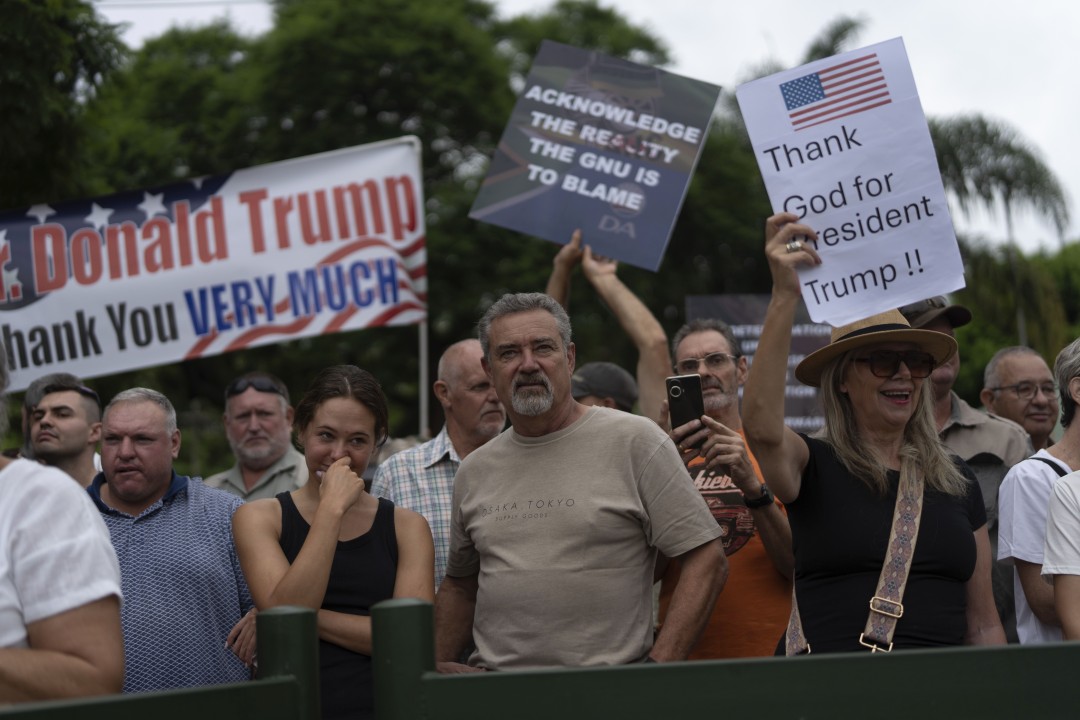https://apnews.com/article/chicago-immigration-crackdown-judge-d5414dffbbd9380f95211c2c18d653d2
Tag Archives: President Donald Trump
Reply
Judge wants immigration agents in Chicago area to wear body cameras after clashes with public
A judge says she will require federal immigration officers in the Chicago area to wear body cameras after the use of tear gas used against protesters.
Business Insider: The UPS chaos shows tariffs have finally arrived on our doorsteps
- US consumers are feeling the pinch of tariffs on small orders shipping into the US.
- The tariffs are also complicating international shipping, customers are finding.
- Problems at UPS have compounded the issue, they say.
Wall Street Journal: White House Meets With New Colleges About ‘Compact’ After Rejections
Washington University in St. Louis, the University of Kansas and Arizona State are invited to weigh in after MIT, others turn down proposal
If at first you don’t succeed, fail, fail, again!
The bottom line is that no significant self-respecting college or university is going to sign on to your stupid “compact”.
Metro: Zelensky unimpressed with Trump’s question about a possible tunnel from Russia to Alaska [Video]
Law & Crime: Judge drags Trump admin into court for emergency hearing after ‘credible sources’ say layoffs will continue despite restraining order
A federal judge in California will haul the Trump administration into court for an emergency hearing on Friday afternoon amid concerns that several thousand federal workers may be laid off in the coming days — in direct violation of a temporary restraining order.

Judge sets emergency hearing over potential Trump admin violations of layoffs order
The judge in the case said the pre-planned layoffs are “the epitome of hasty, arbitrary and capricious decisionmaking.”
Atlantic: The Depth of MAGA’s Moral Collapse
How we got to “I love Hitler.”
https://www.theatlantic.com/ideas/archive/2025/10/maga-moral-collapse-groupchat/684594
Kansas City Star: Newsom Mocks Trump Amid New Military Fitness Rules
Newser: Trump Eyes Drastic Changes to Refugee Policy: Report
Europeans who oppose mass migration would be given priority, according to documents seen by NYT

Trump Eyes Drastic Changes to Refugee Policy: Report
Europeans who oppose mass migration would be given priority, according to documents seen by NYT
https://www.newser.com/story/376983/trump-would-slash-drastically-change-refugee-policy-report.html
Trump and his cronies are racist fascists who want to make American white again.
Slingshot News: ‘It’s An American Flag’: Trump Gets Knocked Over By Cognitive Decline, Needs To Be Told What He’s Looking At In The Oval Office [Video]
President Donald Trump signed a batch of executive orders several weeks ago in the Oval Office. Before signing the executive orders, Congressman John Rose (R-TN) gifted Trump the American flag, which Trump mistook for a blanket. “I could use that at night,” he giddily said.

‘It’s An American Flag’: Trump Gets Knocked Over By Cognitive Decline, Needs To Be Told What He’s Looking At In The Oval Office
President Donald Trump signed a batch of executive orders several weeks ago in the Oval Office. Before signing the executive orders, Congressman John Rose (R-TN) gifted Trump the American flag, which Trump mistook for a blanket. “I could use that at night,” he giddily said.



